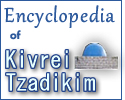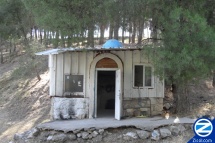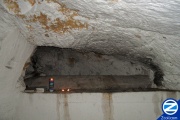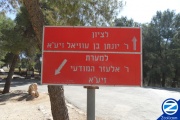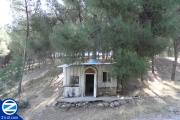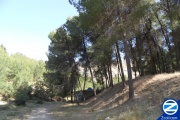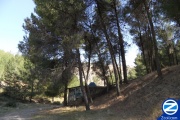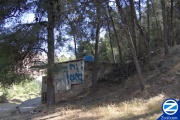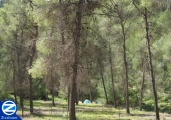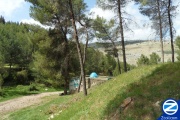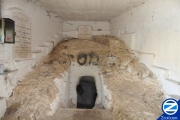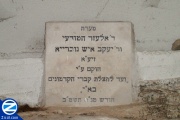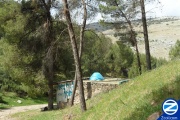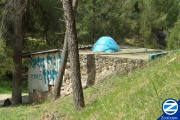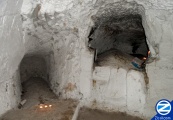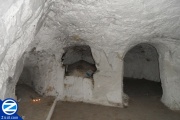Rabbi Elazar HaModai
Rabbi Elazar Hamodai was a third generation Tana, counted amongst the Sages of Yavneh, originating from Modiim. He was the Uncle of Bar Kochva, a failed Moshiach and leader of the great Beitar revolt. During the revolt, Rabbi Elazar Hamodai's merit and prayers saved the city from being overtaken by the Romans until he was killed by his nephew for suspected treason. Rabbi Elazar HaModai is buried in the village of Navarna in Northern Israel. His hillulah is on the 9th of Av.
Contents |
[edit] Bar Kochva Revolt
Around 50 years after the destruction of the Second Temple the Bar Kochva revolt broke out, headed by Shimon ben Kuziva a nephew of Rabbi Elazar HaModai. After loosing the battle of Yerushalaim, Bar Kochva and his army fortified themselves in the city of Betar. Rabbi Elazar HaModai joined them, becoming one of the city's spiritual leaders.
[edit] Protecting Betar
For three and a half year Hadrian YM"S laid siege on the city of Beitar in attempt to crush the Bar Kochva revolt. Each day Rebbe Eleazar HaModai fasted, sitting in sackcloth and ashes, pleading to G-D that he not judge the city on that day. His prayers and tacit of delaying the heavenly wrath day by day, were effective and Hadrian was unable to conquer the city.
About to end the siege out of failure, Hadrian was approached by an elderly Kirite who reviled the secret of Rabbi Elazar HaModai's prayers and offered to solve the issue for him. After sneaking into Betar through the city's sewerage system, the Kirite went to the Beis Medrash where Rabbi Elazar HaModai was praying. Rabbi Elazar HaModai used to reach the lever of 'Hispashtus Hagashme' while he prayed. His soul would be become completely absorbed in the higher spiritual realms and would have no contact with his physical body. Rabbi Elazar HaModai therefore did not notice when the elderly Kirite approached him during his devotions, pretending to whisper in his ear and carry a conversation with him. Other observers did notice the suspicious activity and reported it to Bar Kochava.
[edit] Killed by Bar Kochava
Bar Kochava knew the Sages had withdrawn their support from him by that point and suspected that similar to the first Great Revolt, they secretly sought to surrender and make peace with the Romans. He summoned the elderly Kirite who acted out his part of a Roman spy, declaring that he would be executed regardless, either by Hadrein if he spoke or by Bar Kochva if he remained silent, so he might as well commit suicide and be killed by Bar Kochva, rather then reveal the Emperor's secrets. In the end, the Kirite conceded and 'confessed' to being a messenger between Rabbi Elazar HaModai and Hadrian in attempt to create a truce.
Bar Kochava summoned his uncle who rightfully denied all knowledge of what the Kirite whispered in his ear as he prayed. Enraged, Bar Kochva kicked the elderly Rabbi Elazar HaModai, who weak from his fasting died from the blow. At that moment a heavenly decree declared the fall of the city, quoting the prophecy of Zecharia regarding the foolishness of Bar Kochava "Woe to the worthless shepherd that leaves his flock! The sword shall be upon his arm, and upon his right eye; his arm shall wither and dry up, and his right eye shall be utterly darkened." Bar Kochvah, had killed Rabbi Elazar HaModai who was the right arm and eye of the Jewish nation, he would not meet a parallel punishment. With the merit of Rabbi Elazar HaModai no longer protecting the city, the Roman legions were able to break through the walls on that day, the 9th of Av.
Rabbi Elazar HaModai's followers that managed to survive the following Betar onslaught, carried his body to the Gallil and buried him in a cave in Navarna.
[edit] Tana
Rabbi Eleazar Hamodai was a student of Rabbi Yochanan ben Zakkai and was considered one of the Sages of Yavneh but is quoted only once throughout the Mishna, in Maseches Avos. He is mentioned numerous times in the Briysa and Talmud, mostly regarding Drush. In the Michilta, Rabbi Eleazar Hamodai is mentioned over 40 times. He is often found arguing with Rabbi Yehoshua ben Chanaya. Since there were a number of other Tanaim at the time with the names Elazar or Eliezer, he was referred to by his originating city, Modiin, to differentiate him from the other Sages with the same or smiler name.
[edit] Expert in Drush
Rabbi Elazar HaModai was considered an expert in Drush and a number of times we find Rabbi Gmaliel saying they were in need of the 'Man from Modiin' when it came to that area of Torah.
After saying the Mun fell 60 Amos high, Rabbi Tarphone accused Rabbi Elazar HaModai of exaggeration but the latter went on to explain his opinion through logical deductions from the verses in the Torah.
[edit] Friends
Rabbi Elazar HaModai was know to have corresponded with Rabbi Yehoshua ben Chanaya, Rabbi Eliezer by Hyrcunus, Rabbi Gamliel of Yavneh, Rabbi Tarphone and Rabbi Yishmoel.
[edit] Teachings
- A person that vandalizes holy property, disgraces the holidays, publicly humiliates his friend, desecrates the Bris of Avraham or innovates Torah that is against Halacha, even is if he has in his hand Torah and good deeds, he still has no portion in the World to Come.
- Any person that has what to eat today and asks what will I eat tomorrow? Is lacking in faith.
- The book and the sword came down from heaven bound one to the other. If you keep what is written in the Torah you will be saved from the sword and if not, you will be punished through it.
[edit] Kever Rabbi Elazar Hamodai
Rabbi Elazar Hamodai is buried in the village of Navarna, in bettween Dalton and Amuka. Years after his passing, the Amorah Rabbi Yackov of Navarna was also buried in his burial cave. In the vicinity of the cave are the ruins of the ancient Beit Knesset of Navarna. In the cave there are two Kevarim next to each other. Although it is not factually known, most people assume that the higher Kever in the back room is that of Rabbi Elazar Hamodai and the one in the small tunnel is that of Rabbi Yackov Ish Nadvorna.
[edit] Hillulah of Rabbi Elazar Hamodai
The hillulah of Rabbi Elazar Hamodai is on the 9th of Av. This was the day that Beitar fell to the Romans legions due to his passing.
[edit] More Photos
- Kever Rabbi Elazar Hamodai Photo Gallery

